Introduction
Klaipeda University is a multidisciplinary comprehensive university located in Klaipeda, Lithuania, known for its teaching and research in fields such as marine science.
Overview
Number of students: 3,000 bachelor's, master's and doctoral students study here every year.
Number of faculty and staff: The school has a large number of teaching and research personnel in many majors. The specific number is not yet clear, but the two institutes have a large number of scientific researchers who focus on research and teach students at the same time.
History and establishment time
Officially began operations on January 1, 1991, which also marked the city of Klaipeda as a university town, providing more opportunities for western Lithuania and its residents to receive university education and engage in scientific careers.
School strength
Faculty: It has a team of highly qualified teachers who have rich teaching and scientific research experience in their respective professional fields and can provide students with high-quality education and guidance.
Teaching resources: Equipped with advanced teaching facilities, such as modern laboratories, classrooms, libraries, etc., it creates a good learning environment for students. The school's library has a rich collection of books covering various disciplines, providing strong support for students' learning and research.
Research achievements: It has achieved remarkable scientific research results in the fields of marine science, history and archaeology of the Baltic Sea region, and the qualifications and reputation of its marine researchers are reflected in the academic ranking of world universities. The school ranks among the top 200 in the world in the field of oceanography.
International cooperation: In 2019, it became a member of the European University Alliance EUCONEXUS, which consists of nine universities in coastal cities in different European countries. It is committed to the sustainable development of smart coastal cities. Through cooperation with universities in the alliance, it has carried out joint bachelor's and master's study programs, integrated scientific research structures, created new opportunities for academic exchanges and mobility between teachers and students, and formed new cultural and sports traditions.
Institutional nature
Public university.
Educational philosophy
The school is committed to cultivating professionals with innovative spirit, practical ability and social responsibility, focusing on the comprehensive quality training and personalized development of students, encouraging students to actively participate in scientific research and practical activities, and improving students' ability to solve practical problems and innovation to adapt to the changing needs of society.
Key laboratories and disciplines
Key laboratories: It has research institutions such as the Institute of History and Archaeology of the Baltic Sea Region and the Institute of Oceanography. These institutes not only undertake important scientific research projects, but also provide students with a platform for practice and research, so that students can be exposed to cutting-edge scientific research results and practical experience during the learning process.
Key disciplines: Marine technology and natural sciences, social sciences and humanities, and health sciences are the key disciplines of the school. Among them, oceanography has a high reputation and influence internationally, and has strong teaching and scientific research strength in professional directions such as marine transportation engineering and physical oceanography; economics and English linguistics in the field of social sciences and humanities are also well developed; majors in the field of health sciences have made important contributions to the training of professional talents in the field of medical and health care.
Department settings
The school has the following departments:
Department of Marine Technology and Natural Sciences: Covering multiple majors such as chemical engineering, electrical engineering, mechanical engineering, physical geography and oceanography, it provides students with systematic natural science and engineering technology education, and cultivates students' professional skills and innovation capabilities in related fields.
Faculty of Social Sciences and Humanities: including economics, English linguistics, leisure sports, social work and crisis intervention, etc., focusing on cultivating students' humanistic literacy, social analysis ability and cross-cultural communication ability, so that students can play an important role in the fields of social sciences and humanities.
Faculty of Health Sciences: with majors such as health care management and sports therapy, it is committed to cultivating professionals in the field of medical and health care, and contributing to improving the level of public health and the quality of medical services.
Ranking
According to the Shanghai Ranking of World Universities Academic Ranking, Klaipeda University ranks among the top 200 in the world in the field of oceanography.
Expenses
Tuition fees: Undergraduate tuition fees vary depending on the major, such as chemical engineering, electrical engineering and other majors. The tuition fee is about 2300-3000 euros/year, the master's tuition fee is about 2500-3500 euros/year, and the doctoral tuition fee is about 3000-4000 euros/year.
Living expenses: In Klaipeda, the monthly living expenses are about 500-800 euros, including accommodation, food, transportation, daily necessities, etc. The specific expenses vary depending on personal lifestyle and consumption habits.
Campus
Campus location: Located in a spacious area in the north of Klaipeda, the campus environment is beautiful. Part of the academic campus consists of a Prussian barracks complex built in the early 20th century. After restoration, it has adapted to the needs of academic institutions and has served for thirty years. Next to the historical buildings, there are new buildings such as the Institute of Oceanography, the Klaipeda University Business Incubator, a large classroom complex and dormitories. The school also plans to build another dormitory, a new sports center and laboratory building, etc.
Campus facilities: The teaching facilities on campus are advanced. In addition to the laboratories and libraries mentioned above, there are also comfortable student dormitories to provide students with safe and convenient accommodation conditions. In addition, the school also has facilities such as canteens, gymnasiums, and student activity centers to meet students' daily life and entertainment needs.
-
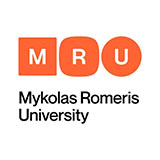
Mykolas Romeris University
-

LCC International University
-

Vytautas Magnus University
-

ISM University of Management and Economics
-
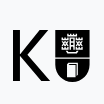
Klaipeda University
-
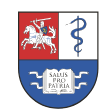
Lithuanian University of Health Sciences
-
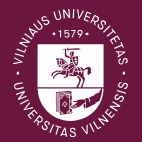
Vilnius University
-

Vilnius Gediminas Technical University
-

SMK College of Applied Sciences
-
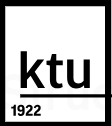
Kaunas University of Technology
-

Mesoamerican University
-

Istmo University
-

Mariano Galvez University of Guatemala
-

Regional University of Guatemala
-

Galileo University
-

Francisco Marroquín University
-

Rafael Landívar University
-

University of the Valley of Guatemala
-

University of San Carlos of Guatemala
-

Technological Institute of Tlaxcala Plateau
-

Golfo University
-

Technological University of South Sonora
-

Technological University of Huejotzingo
-

Tizimín Institute of Technology
-

Chilpancingo Institute of Technology
